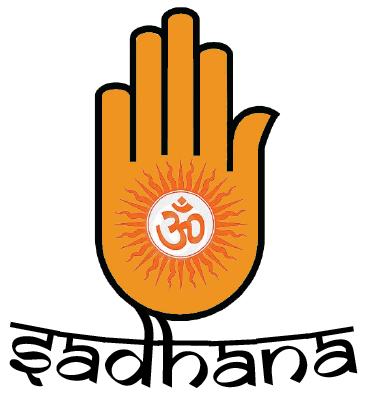Satsangs for Collective Liberation
Purpose: The Satsang for Collective Liberation (SCL) is a Sadhana educational initiative to provide Hindus in the diaspora and elsewhere with the tools to critically engage with and reimagine Hindu traditions to resist oppression and promote social justice. Formerly known as the Liberation Theology Reading Group, the SCL is intended to be a space for Hindus seeking liberationist perspectives on their traditions, cultivating faith and wisdom for a more just world.
Structure: Over four months, we will explore five themes: 1) temples, traditions, and teachings; 2) histories of resistance and interreligious learning; 3) ecology and the environment; 4) intersections of identity, politics, and religion; and 5) diasporas. While this list is certainly not exhaustive, we aim to provide a reasonable introduction to the problems and potentials of liberationist thought in Hindu traditions. SCL sessions on the readings listed below will take place twice a month. We will also be holding a Care Space during the in-between weeks (i.e., the weeks immediately following a session). These are optional, and serve as a space for participants to be together in spiritual companionship, and will not necessarily engage the readings.
Timeline: This year, the program will operate as a cohort from March 2025 to August 2025. Pending funding, we hope to be able to offer these satsangs in future years.
Background: This syllabus is prepared for those with little or no prior knowledge of Hindu traditional sources, religious studies, South Asian studies, or related subjects. However, participants are encouraged to share their knowledge and experience that they find pertinent to the topics. All readings are provided in English and free of charge.
The co-facilitators for this course are Shashank Rao (shashank@sadhana.org) , Neha Savant (neha@sadhana.org), and Priyanka Srinivasa (priyanka@sadhana.org), who all are current board members of Sadhana. With varying backgrounds in religious studies, theology, ecology, anthropology, and grassroots organizing, our team aims to support all learners in this course. The optional Care Space during the off weeks is part of this commitment.
If you have any questions, you are welcome to reach out to us!
Past readings
In 2021 and 2023, this initiative was titled “Hindu Liberation Theology Reading Group” and below are a sampling of some readings that the group discussed.
April 4, 2021: What is Liberation Theology?
Main Reading: Miguel A. De La Torre. "Introduction." In The Hope of Liberation in World Religions, ed. Miguel de la Torre (Baylor University Press, 2008): 1-12.
Primary Sources: Bṛhadāraṇyaka Upaniṣad, Chokhamela abhang, Akka Mahadevi vachana
May 2, 2021: Reimagining Hindu Traditions in the Diaspora
Main Reading: Paula Richman, “The Ramlila Migrates to Southall.” In Questioning Ramayanas: A South Asian Tradition, ed. Paula Richman (Berkeley: University of California Press, 2001), 309-328.
Primary Sources: Bollywood song, Vijaya Dabbe poem
June 6, 2021: The Origins of Liberation Theology
Main Reading: Rosemary Radford Ruether, “Latin American Liberation Theologies.” In The Hope of Liberation in World Religions, ed. Miguel de la Torre (Baylor University Press, 2008): 13-34.
Primary Sources: Eunice de Souza poem, Kabir poem
July 11, 2021: Liberation Theology Through Advaita Vedanta
Main Reading: Anantanand Rambachan, “Hinduism.” In The Hope of Liberation in World Religions, ed. Miguel de la Torre (Baylor University Press, 2008): 113-129.
Primary Sources: Excerpt from B.R. Ambedkar’s Annihilation of Caste, Bhagavadgita verse, Basavanna vachana
August 1, 2021: Bhakti Traditions and Gender
Main Reading: Excerpts from Vasudha Narayanan, “Bhakti.” In Brill’s Encyclopedia of Hinduism Online, edited by Knut A. Jacobsen, Helene Basu, Angelika Malinar, Vasudha Narayanan.
Introduction
The Received Narrative on the Spread of Devotion
The Spread of Bhakti
Women Bhaktas
Primary Sources: Andal poem, Meerabai bhajan, Janabai abhang, Kamala Das poem
October 3, 2021: Bhakti Traditions and Caste
Main Reading: Christian Lee Novetzke, “Namdev.” In Brill’s Encyclopedia of Hinduism Online, edited by Knut A. Jacobsen, Helene Basu, Angelika Malinar, Vasudha Narayanan.
Primary Sources: Namdev abhang, Kazi Nazrul Islam song, Bhagat Kanwar Ram song
November 14, 2021: Critical Interpretations of Hindu Festivals
Main Readings:
Pradnya Waghule, Reading Caste In Holi: The Burning Of Holika, A Bahujan Woman. Feminism in India, March 13, 2017.
Anantanand Rambachan, Holi: Speaking Truth to Power
Radhika Borde, The Asurs through Their Myths: Celebrating Iron and the Anti-Heroes of the Hindu Epics, from Brill’s Encyclopedia of the Religions of the Indigenous People of South Asia Online
Primary Sources: an Instagram comic, Sanskrit verses on Durga, and a Hindi film song
December 14, 2021: Sree Narayana Guru
Main Readings:
George Pati, Sree Narayana Guru, from Oxford Bibliographies in Hinduism.
P. Chandramohan, Religious Reforms and Narayana Guru. From Developmental Modernity in Kerala (Columbia University Press, 2016): 63-70.
Primary Source: Canto Two of the Narayana-Smriti
February 6, 2022: Love and Liberation Theology Through Buddhism
Main Reading: bell hooks, All About Love: New Visions (New York: HarperCollins, 2000).
Chapter 1: Clarity: Give Love Words
Chapter 5: Spirituality: Divine Love
Primary Sources:
March 27, 2022: Caste, Reform, and Śrīvaiṣṇavism
Main Reading: Katherine Young, Turbulent Transformations: Non-Brahmin Śrīvaiṣṇavas on Religion, Caste and Politics in Tamil Nadu (Orient BlackSwan, 2021)
Primary Sources: Verses of the Āḻvārs: Tiruppāṇ Āḻvār, Āṇḍāḷ, Nammāḻvār
May 15, 2022: Caste and the Ramayana
Ramdas Lamb, "Personalizing the Ramayan: Ramnamis and Their Use of the Ramcaritmanas." In Many Ramayanas: The Diversity of a Narrative Tradition in South Asia, ed. Paula Richman. (1991: University of California Press) p. 236-251
Kuvempu, "Transforming a Brahmin: Shudra Tapasvi (excerpt)." In Ramayana Stories in Modern South India: An Anthology, ed. Paula Richman (2008: Indiana University Press) p. 119-134
June 19, 2022: Queerness and Hinduism
Main Readings:
Anantanand Rambachan, “Liberation from Homophobia.” In A Hindu Theology of Liberation: Not-Two Is Not One. SUNY Press, 2014.
First-person reflections from July 1996 edition of Trikone magazine
Sandip, “Editorial”
Arvind Kumar, “Many Branches on One Tree: Reflections on Vedanta, Homosexuality and Swami Chinmayananda”
Munia, “So You Guys Worship Cows? A queer woman ponders being Hindu in America”
Primary Sources: Poems by Basavanna, Muttusvami Dikshitar, Anish Kumar, and Jaya
